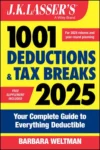How to Report 1099-K Transactions
If you sold personal-use property, such as tickets to a sporting event, used designer clothing, or used home furniture, on an online platform, such as eBay or Etsy, and accepted payment through a credit or debit card, PayPal, or other similar method, you likely may have received Form 1099-K from a card payment or third-party settlement organization. This may be the bank or other company that processed your payment. For 2022 transactions, the processors initially had been required to issue Form 1099-K if payments exceeded $600. However, in early 2023, due to a growing number of complaints from processing companies and others, the IRS created a transition rule for 2022 transactions, allowing reporting under the rules in place for 2021. Those rules said the form was required only if payments exceeded $20,000 and there were more than 200 transactions. Many individuals not in business may nonetheless have received Form 1099-K under the $600 rule for a 2022 sale and should report the transaction correctly on their 2022 Form 1040 or 1040-SR. New FAQs from the IRS provide some clarification on reporting requirements (Fact Sheets 2023-06 and 2023-07).
If you realized a loss on the sale of personal use property because your tax basis is greater than the funds you received, you cannot deduct the loss. Nonetheless, you should report it because IRS computers are looking for the information from Form 1099-K or other source to be reported. Here’s how the IRS says to handle it:
- Report your proceeds (the Form 1099-K amount) on Part I of Schedule 1 (Form 1040 or 1040-SR)– Line 8z – Other Income, using the description “Form 1099-K Personal Item Sold at a Loss.”
- Report your costs, up to but not more than the proceeds amount (the Form 1099-K amount), on Part II – Line 24z – Other Adjustments, using the description “Form 1099-K Personal Item Sold at a Loss.” If you received a 1099-K in error and can’t get it corrected, your software may put the offset on Line 8z rather than on Line24z, and this is acceptable by the IRS for 2022 returns.
If you receive multiple Forms 1099-K, you are permitted to combine the amounts into one item on Schedule 1.
Alternatively, you can use Form 8949 and Schedule D to report the sale of a personal item at a loss instead of Schedule 1 if you wish, for example, because you have other transactions that require you to file Form 8949 and Schedule D anyway. Because the loss isn’t deductible, enter an adjustment when reporting the proceeds and basis of the personal item on Form 8949 as follows. Enter “L” in column (f) as the code explaining the loss is nondeductible. Then enter the amount of the nondeductible loss as a positive number in column (g). This will result in $0 as the gain or loss in column (h).
Bottom line: If you have a gain in personal use property, it must be reported on Form 8949 as you would with securities, collectibles, and realty, irrespective of whether a Form 1099-K has been sent.
Independent contractor
One who controls his or her own work and reports as a self-employed person.



